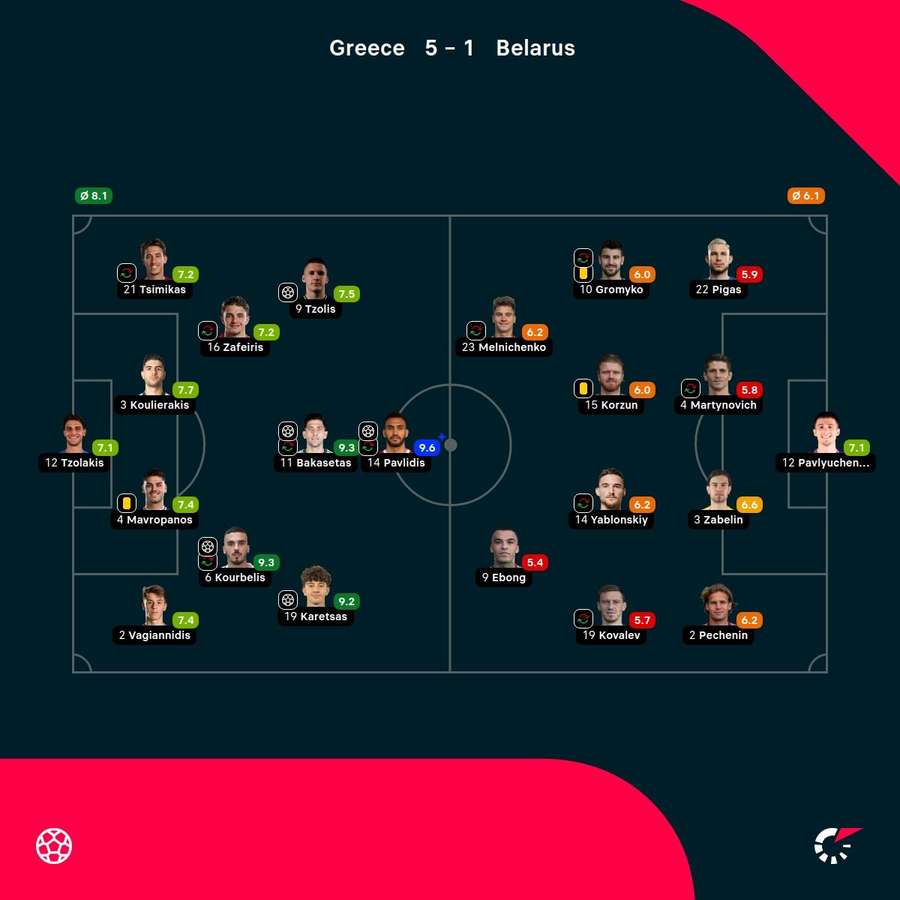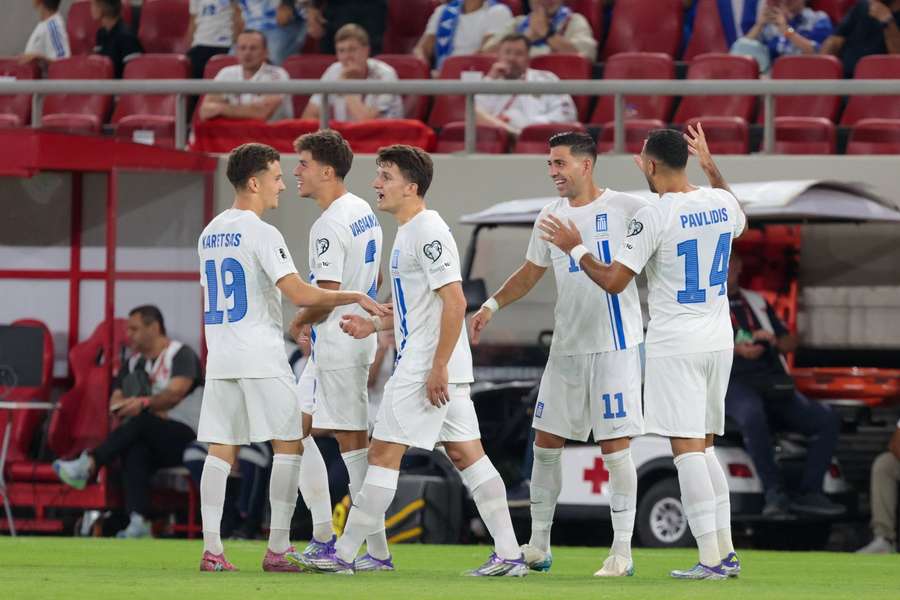It's been 20 years since Greece qualified for the European Championship with a humble ambition of hoping to score just one goal. When Otto Rehhagel’s men arrived in Portugal in 2004, unbeaten in 14 matches, the national team had never won a game in a major tournament.
They had never even scored a goal. But against all odds and common sense, they managed to leave Portugal as champions in possibly the greatest upset in the competition's history.
Back then, they were labelled "the most boring champions ever" and there was widespread criticism of their highly defensive and pragmatic tactics, which stifled opponents and were regarded as anti-football by many observers. But nobody cared about that in Greece when Rehhagel’s men returned home that summer to delirious celebrations in Athens.
However, Greece's Euro 2004 victory has proved to be an oasis in a desert. Since the 2000s, Greek football has been experiencing a decline, with poor domestic attendances averaging just 5,000 spectators per match, and fans are discouraged by a drop in quality on the pitch, which is also evident from the results.
In 2003-04, Greece had three clubs playing in the Champions League group stage, with two of them qualifying automatically. Now only the Greek champions can participate in the competition and must navigate two qualification rounds to reach the group stage. The problems on the pitch pose an enormous challenge, but problems outside are much worse as Greek football continues to be haunted by corruption, a struggling economy, one team dominating (Olympiakos), and a violent culture among the fans.
"There will always be corruption in Greece, and it has spilt onto the pitch", says the London-based Greek football expert Konstantinos Lianos to Flashscore. "There have been allegations of games being rigged as long as I can remember, but nothing has been proven. Still, people have suspicions of what's going on.
"One of the reasons for the corruption is that it’s a power show. In order to rise to the top, you have to wheel and deal to make it happen. The main difference between Greek football and the rest of European football is the owners. Owners usually stay in the background, but in Greece, you see them every day. They always make their presence known. It's like you have The Truman Show and in Greece you have 'the owner show'. And that constantly creates controversy and unrest on and off the pitch", says Lianos.
But while the Greek public is discouraged by power squabbles between football owners, referee scandals, and spectator violence, they may take heart from the fact that a new Golden Generation is set to reignite the passion for the Greek national team.
Greece's EURO-winning squad from 2004 couldn't capitalise on that success in the following years, as the national team descended into a profound state of anonymity that lasted for two decades. The turning point arrived with their promotion from Nations League Group C to Group A within two years.
Greece hasn't qualified for a final tournament in 20 years, but hope is ripe that Ivan Jovanic's side will now be one of the 48 participants for the 2026 FIFA World Cup in Canada, Mexico, and the United States.
Greece has played 13 matches since they lost on penalties against Georgia in the qualification playoff for the EURO 2024; they have won 10 and lost three, thanks to an outfit bursting with young talent.

When Greece won 3-0 at Hampden Park in March this year, Jovanovic fielded a starting XI in which eight of the 11 players were under 23 years old. Lianos says that Jovanovic has had an enormous impact since he replaced former Chelsea midfielder Gus Poyet at the helm in August 2024.
Jovanovic spent most of his career as a player at the northern Greek club Iraklis. As a coach, he led teams in Greece, Cyprus, and the United Arab Emirates, while he also served as a UAE national team coach before he decided to return to Greece in 2021.
"Ivan Jovanovic knows Greek football; he understands the Greek culture. He finally ended years of depressing, defensive football. He understands that if you want to get the Greek crowd going, you have to play attacking football", says Lianos.
Jovanovic's attacking style focuses on a well-organised, adaptable system with emphasis on possession, intelligent player movement, and quick combinations to break down defences, often utilising dynamic wing play and a strong midfield presence to create scoring opportunities.
Greece has been a much-improved side, in no small part thanks to the introduction of 17-year-old Konstantinos Karetsas. Karetsas joined the academy in Genk, where he was born to Greek parents and quickly accelerated through the ranks to make his first-team debut at the end of last season when he was introduced as a 16-year-old substitute against Cercle Brugge.
Karetsas made international headlines when he became the youngest goalscorer in the history of the Greek national team and also became the youngest scorer ever in a UEFA Nations League game, at 17 years and 124 days old, when he scored in Glasgow. Karetsas is part of an incredibly talented Greek generation also featuring Konstantinos Koulierakis (21), Georgios Vagiannidis (23), Giannis Konstantelias (22), Christos Mouzakitis (18), Christos Zafeiris (22), Christos Tzolis (23), and Konstantinos Tzolakis (22). The average age of those seven players, combined with Karetsas, is just 21 years old.
"It’s the best Greek team since 2004, there is a belief, there is hunger, there is togetherness", says Lianos. "There is a stern belief that this team will not only win their qualifying group ahead of Denmark, but people even see them as potential outsiders for the World Cup title. It will be a tragedy if this team doesn't qualify", ends Lianos.
Greece will face Denmark on Monday evening in Piraeus in their second group match after beating Belarus 5-1 at home on Friday.

